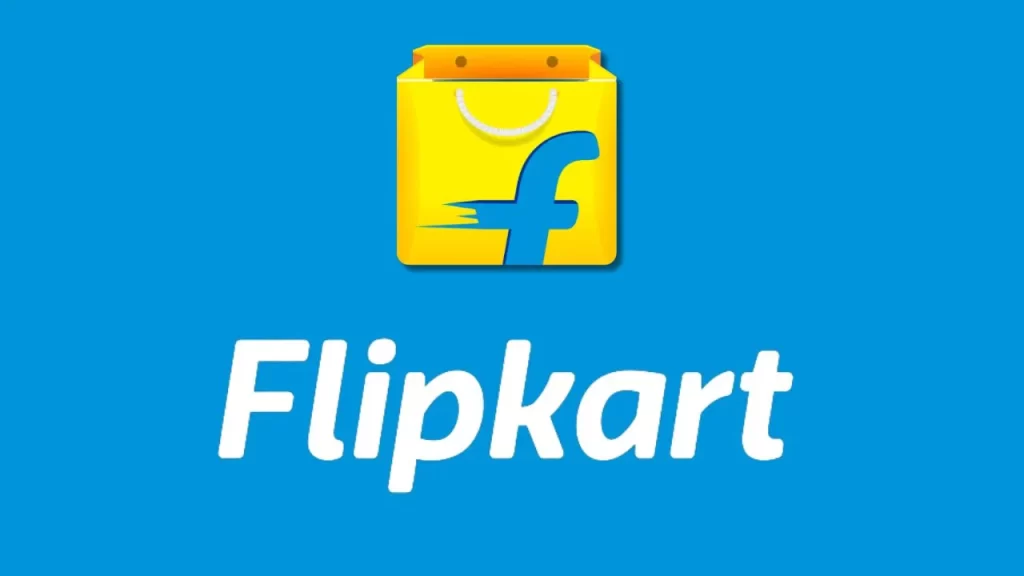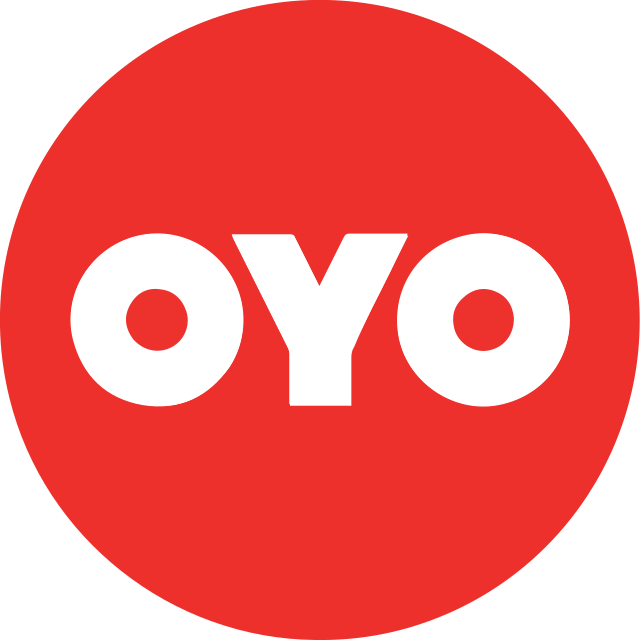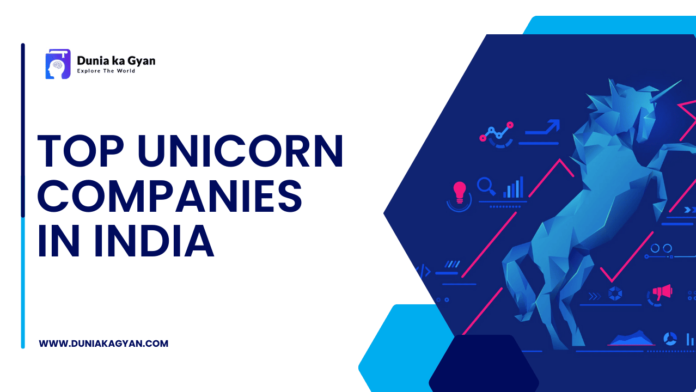A unicorn company is one that has amassed a valuation of over USD $1 Billion. The term was first used by a venture capitalist by the name of Aileen Lee in 2013. Typically, unicorn companies belong to private investors and their shares are not yet available to the public. Since a startup gaining a valuation of USD $1 Billion is a rare event, Lee chose the term ‘unicorn’ to showcase its rarity.
India is the fastest growing economy in the world, and also houses the fastest growing startup ecosystem in the world. In fact, the country now houses 112 unicorn companies, with a combined total valuation of over USD $350 billion.
With the Indian government providing lucrative schemes to startups, such as the Startup India Initiative and the Startup India Seed Fund Scheme, there’s a high likelihood that India’s startup ecosystem will be propelled to further heights.
In this post, Duniakagyan has compiled a list of unicorns in India that you should know about. So, let’s get started!
1. InMobi

| Founding Date | 2007 |
| Revenue | $70.42 million |
| Founders | Naveen Tiwari, Amit Gupta, Mohit Saxena, Abhay Singhal |
Previously known as mKhoj, InMobi is one of the first companies in India to take advantage of mobile advertising. The company helps brands and other companies connect and engage with consumers through contextual ads on their smartphones.
The company itself is based in Bangalore, and has 22 offices in 15 different countries. Currently, InMobi’s workforce comprises of 2,500 people. In 2020, it became India’s first Unicorn company after raising USD $145 million from the likes of Google and Mithril Capital.
2. Flipkart

| Founding Date | 2007 |
| Revenue | $7 billion |
| Founders | Sachin Bansal, Binny Bansal |
Flipkart is one of the largest e-commerce companies in the world. In India, its chief competitors are global giant Amazon and domestic e-commerce company Snapdeal. It was founded in 2007 by the Bansals in a two-bedroom apartment, and started off by selling books. Sounds familiar, eh?
In 2018, Walmart won a bidding war against Amazon for Flipkart’s acquisition. Walmart now owns a 77% majority stake in the company, for a total amount of USD $16 billion.
Today, Flipkart has a 48% market share (as of FY23), and has acquired apparel giant Myntra to become the leading e-commerce apparel store in India. The co-founders may have left the company, but Flipkart continues to dominate the Indian e-commerce market in various segments.
3. BharatPe

| Founding Date | 2018 |
| Revenue | $130 million |
| Founders | Ashneer Grover, Bhavik Koladiya, Shashvat Nakrani |
BharatPe is a fintech company that came into the limelight during the pandemic, as the exchange of cash was discouraged and digital payments took precedence. The company provided financial services to small businesses and merchants, and has now become a ubiquitous feature in most Indian grocery stores.
While the company came under fire in 2023 for controversial data theft allegations, it continues to grow at a rapid pace. Two of the company’s founders, Ashneer Grover and Bhavik Koladiya, have since left the company to pursue other ventures.
4. Dream11

| Founding Date | 2008 |
| Revenue | $800 million |
| Founders | Harsh Jain, Bhavish Seth |
With the massive popularity of cricket and the growing fantasy sports scene in India, it was only a matter of time before a company combined the two to become a unicorn.
Dream11 is a fantasy sports platform that allows people to play fantasy cricket (and a variety of other sports, like football and hockey) by creating a virtual team of real players. Each user is then provided a score based on the number of contests they have entered in, and the real-life performance of the players. Attaining high ranks in the leaderboard gives the users a chance to win cash and other prizes.
In India, the company has racked up slight controversy when it comes to the differentiation between “a game of skill” and “gambling”. However, Dream11 continues to grow at a rapid pace, thanks its overall popularity and integration with India’s love for cricket!
5. PhonePe

| Founding Date | 2015 |
| Revenue | $206 million (FY 21 – 22) |
| Founders | Sameer Nigam, Burzin Engineer, Rahul Chari |
PhonePe is another digital payments unicorn brand in India and has its headquarters at Bengaluru, Karnataka. It was one of the early adopters of the Unified Payment Interface (UPI) portal in India.
The company was acquired by Flipkart in 2016, and had also partnered with Yes Bank (a major Indian bank) to launch the PhonePe app, which used UPI for digital payment processing.
PhonePe is one of the largest digital payment brands in India, holding almost a 50% market share. This is according to a report on The Hindu newspaper in 2023, which is based on statistics provided by NPCI (National Payments Corporation of India).
6. OLA

| Founding Date | 2010 |
| Revenue | $350 million |
| Founders | Bhavish Aggarwal, Ankit Bhati |
OLA, also known as Ola Cabs, is an Indian ridesharing company, and the biggest domestic rival of Uber. It now operates in countries such as Australia, New Zealand, and the UK.
The company was initially registered as Olatrip.com, a trip planning venture. However, seeing the public’s disappointment with local cabs, it moved to the ridesharing segment.
Today, Ola provides multiple services, such as ride hailing, fleet (which leases cabs to drivers), cloud kitchen operations, and even financial services through OlaMoney.
7. OYO Rooms

| Founding Date | 2012 |
| Revenue | $680 million |
| Founders | Ritesh Agarwal |
OYO Rooms is a hospitality company that leases homes, hotels, and living spaces. The company was initially focused on the budget segment, providing cheap rooms to the middle class segment in India. Today, it operates in 800 cities, scattered over 8 major countries.
The venture was initially launched as Oravel Stays by Ritesh Agarwal, providing budget hotel listings on their website. Since then, OYO has onboarded multiple personalities in important roles, such as paralympian Deepa Malik and Rajnish Kumar, who is the former Chairman of State Bank of India.
In October 2021, OYO Rooms started an IPO worth USD $1.2 billion and the company is now valued at a whopping USD $9.6 billion!
8. Zomato

| Founding Date | 2008 |
| Revenue | $890 million |
| Founders | Deepinder Goyal, Pankaj Chaddah |
Zomato, formerly known as FoodieBay, is a food delivery and restaurant aggregator company. It was initially started as a restaurant recommendation portal, and the company now operates in countries such as Australia, Philippines, and the US.
Zomato entered the food delivery sector in 2015, in an effort to expand its offerings from just being a restaurant recommendation website. It also partnered with domestic delivery services like Grab and Delhivery before creating its own fleet of food delivery personnel.
When the company provided its first IPO in 2021, it was valued at $8 billion USD. Since then, it has also acquired quick commerce company BlinkIt, and now operates in the grocery and household items segment as well.
9. Swiggy

| Founding Date | 2014 |
| Revenue | $1.1 billion |
| Founders | Sriharsha Majety, Rahul Jaimini, Nandan Reddy |
Swiggy is Zomato’s direct competitor in the food delivery and hyperlocal space. It’s headquarters is in Bangalore, Karnataka, and it operates in all the major cities of India. As of 2021, Swiggy’s service is available in 500 cities across India.
The founders initially started the company as an e-commerce website called Bundl, which was then rebranded to Swiggy. The company’s entry into the food delivery sector, it rejuvenated the market, which was saturated at the time by services like Foodpanda and Ola Cafe.
Swiggy also operates in the grocery delivery space via Instamart, which includes dark stores. The company now has a valuation of USD $10.7 billion, after it was invested in by US-based Invesco for $700 million.
10. upGrad

| Founding Date | 2015 |
| Revenue | $25 million |
| Founders | Ronnie Screwvala |
upGrad is one of the largest online educational companies in India today, and it focuses on specializations like Digital Marketing and Product Management.
The company has partnered with various universities and educational institutions to provide certifications and degrees. These colleges include the likes of Drexel University, International School of Management, and The American Business School.
Conclusion
India’s economy and growth provides impetus to thousands of startups each year. Moreover, with more entrepreneurial and financial educations, India’s youth are rapidly being drawn to the startup ecosystem. Along with this, the Indian Government is more willing than ever to provide India’s talent pool with access to capital to accelerate the country’s economic growth. This ensures that India will be a key player in the global startup scene for years to come.

